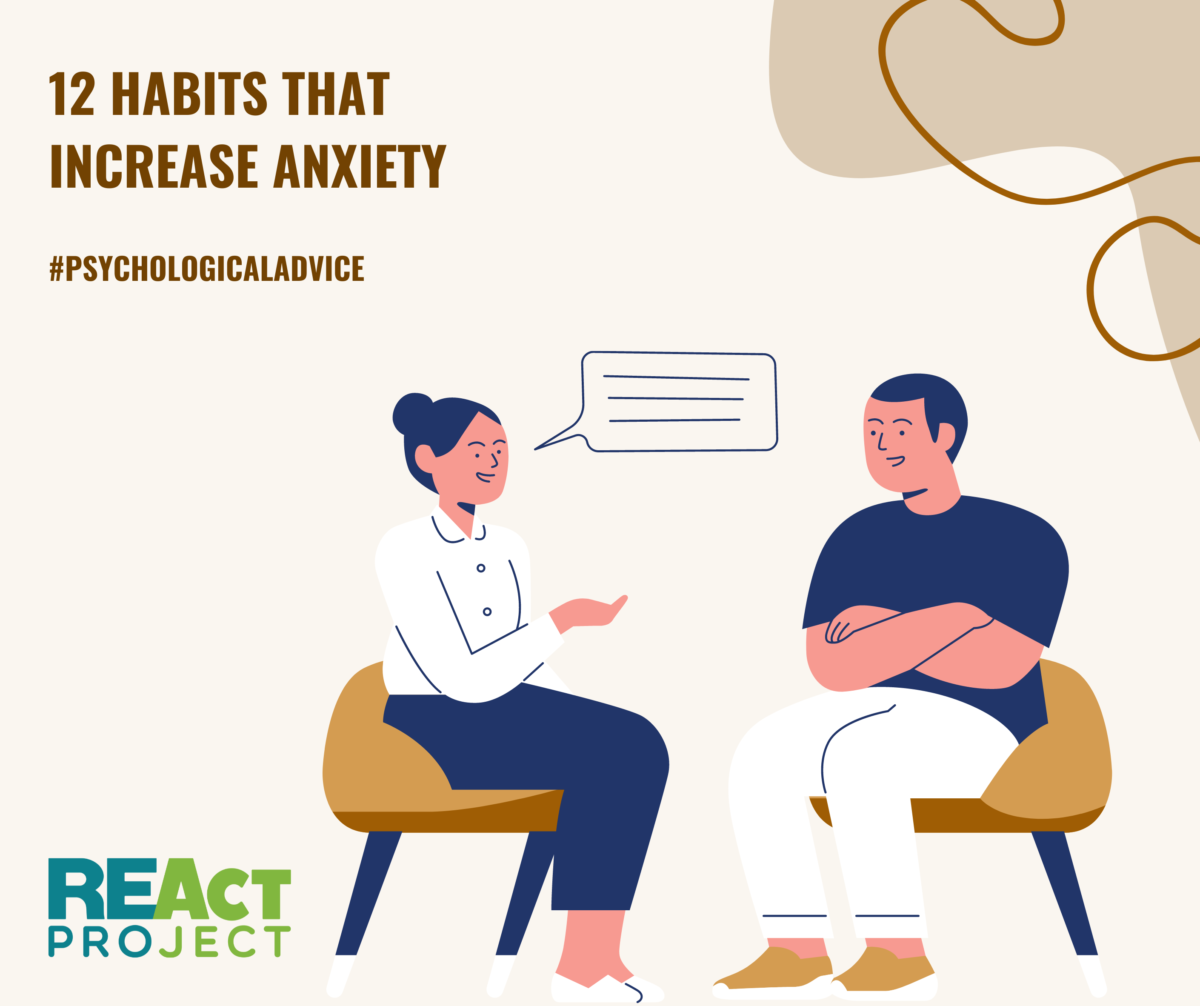First of all, it is worth noting that there are two similar emotions that are often confused – anxiety and fear. However, if you dig deeper, they differ significantly. Fear is what we feel right now as a reaction to ongoing events, while anxiety is about events in the past or future that we are transferring to the present moment.
We are used to saying that fear, anger, or anxiety are negative emotions, something bad. However, in fact, these are normal feelings, they are important and useful for a person, like any others. Until the moment when a person is completely immersed in this anxiety, it becomes difficult for him to switch from thoughts about the past or future to the present moment when he stops noticing that he is really in a safe place and there is no threat. This is how anxiety arises.
The following 12 habits are common among anxiety sufferers. It is not an easy task to change habits that are with you throughout life, but it is worth the effort.
- Skipping meals
Skipping meals causes hypoglycemia (when blood sugar falls below normal levels), which can lead to common anxiety symptoms such as irritability, nervousness, dizziness, and weakness.
- Cravings for sweets
Sugar can temporarily depress an area of the brain normally active during times of anxiety, stopping the release of the stress hormone (cortisol). Therefore, we can feel relief from anxiety when we eat something sweet. But scientific research suggests that sugar consumption increases anxiety and reactivity to stress, leading to more anxiety.
- Bad eating habits
Unhealthy eating habits can have a big impact on the intake of essential nutrients: carbohydrates, proteins, essential fatty acids, vitamins, and minerals that are essential for mental health and nervous system function. Certain nutrient deficiencies (B vitamins, vitamin C and E, magnesium, selenium, and omega-3 fatty acids) can affect mood and anxiety levels.
- Unsportsmanlike lifestyle
Your body is designed to move, and some body functions depend on physiological movement. If you sit all day and don’t exercise, your physical and mental health is bound to suffer.
- Constantly watching the news
Anxiety is characterized by excessive worry and fear, and watching the news can exacerbate this problem, leaving a depressed mood and anxiety. While it’s especially important to be aware of what’s happening in the country right now, watching or reading the news in the morning can set an alarming tone for the day, while negative images and words before bed can affect the quality of sleep. If possible, avoid reading the news first thing in the morning and last thing before bed.
- Ignoring the state of anxiety
Your anxiety is a signal that tries to indicate that you need to work on something or change something. If you ignore this signal, the condition will only get worse.
- Caffeine intake
Caffeine is the main anxiety trigger. This link between caffeine and anxiety is not obvious because we temporarily feel good after consumption and only feel the disturbing effects after a few hours.
Start drinking a variety of herbal teas. The best teas for anxiety are chamomile, valerian root, and oat straw.
- Binge eating and fast food
Very often, when preparing fast food, chemical ingredients and additives are used. These ingredients may contribute to anxiety while lowering mood and social behavior. The worst culprits are artificial sweeteners, colors, and flavor enhancers.
- Insufficient water intake
Dehydration puts stress on your body, and when your body is under stress, you may experience general symptoms of anxiety.
Drink more water throughout the day to stay hydrated.
- Drinking alcohol
Alcohol increases anxiety levels for several hours after drinking. As the alcohol begins to fade, the person feels more anxious, tired, and depressed than before the alcohol was consumed.
- Lack of sleep
Lack of sleep increases the appearance of negative thoughts, significantly increases the level of anxiety, and reduces control.
- Comparing yourself to others
When you do this every day, you will have a bad mood and negative thoughts that lead to anxiety. In addition, we tend to focus on someone’s best features, comparing them to our weaknesses.


